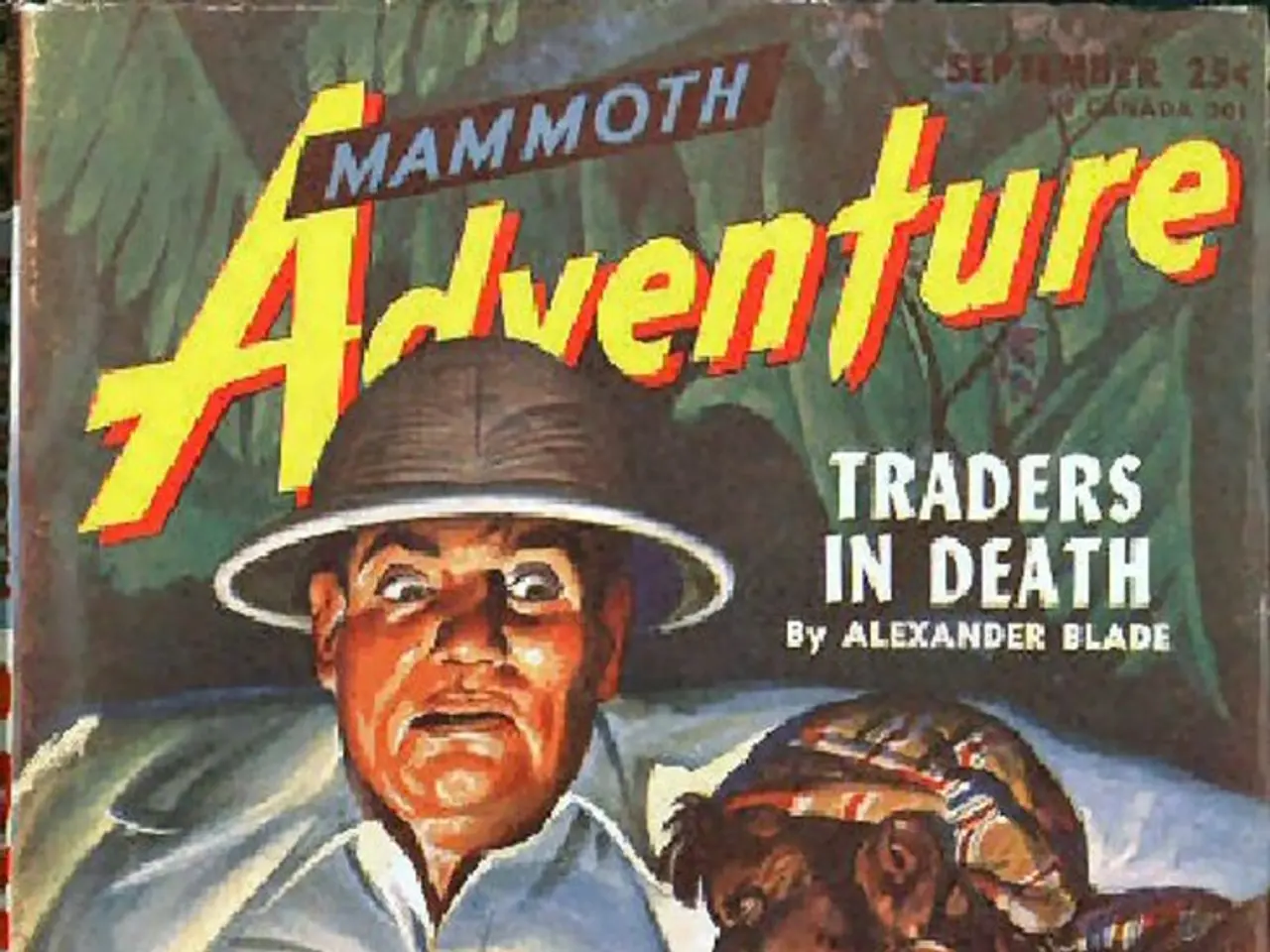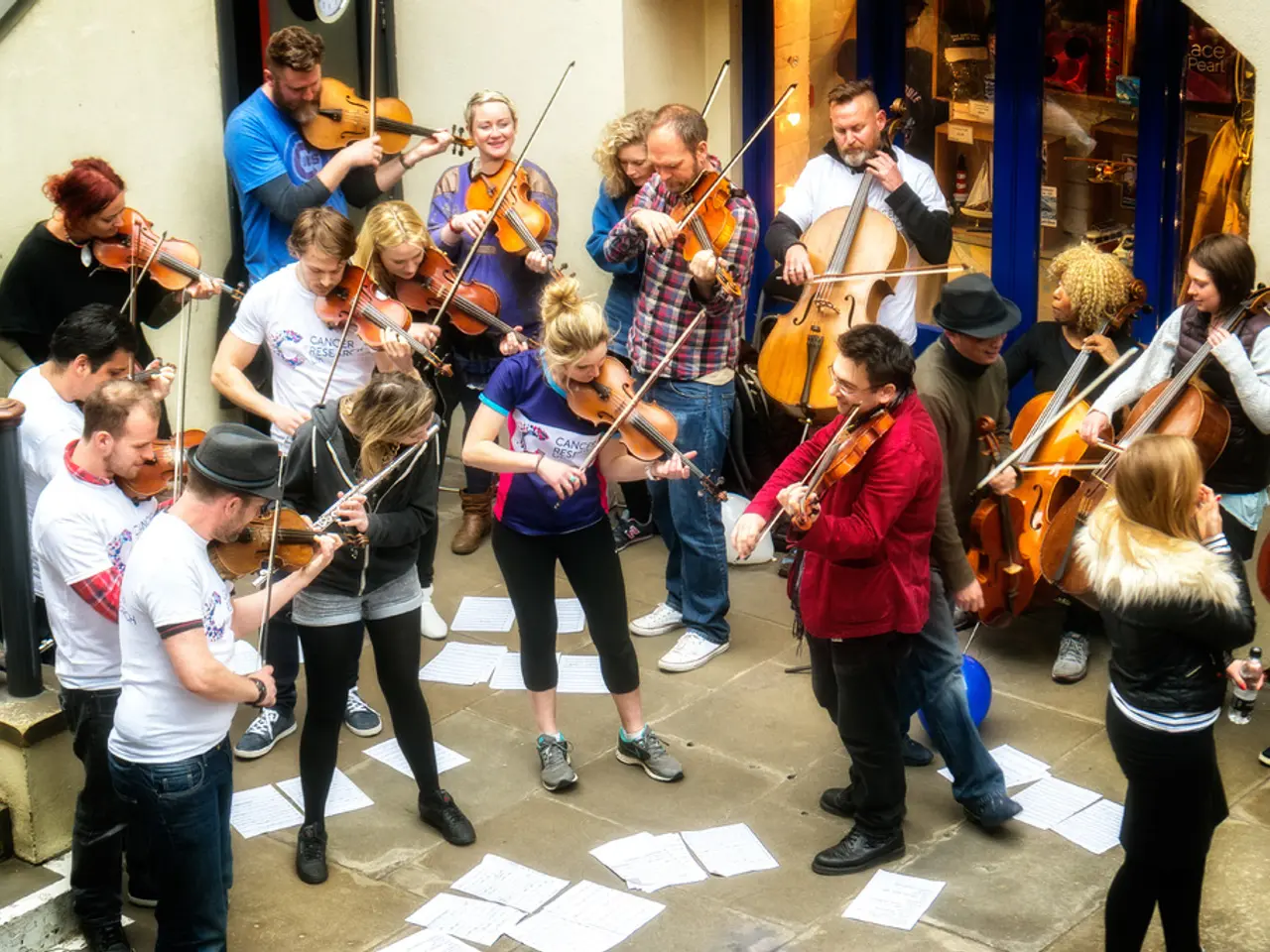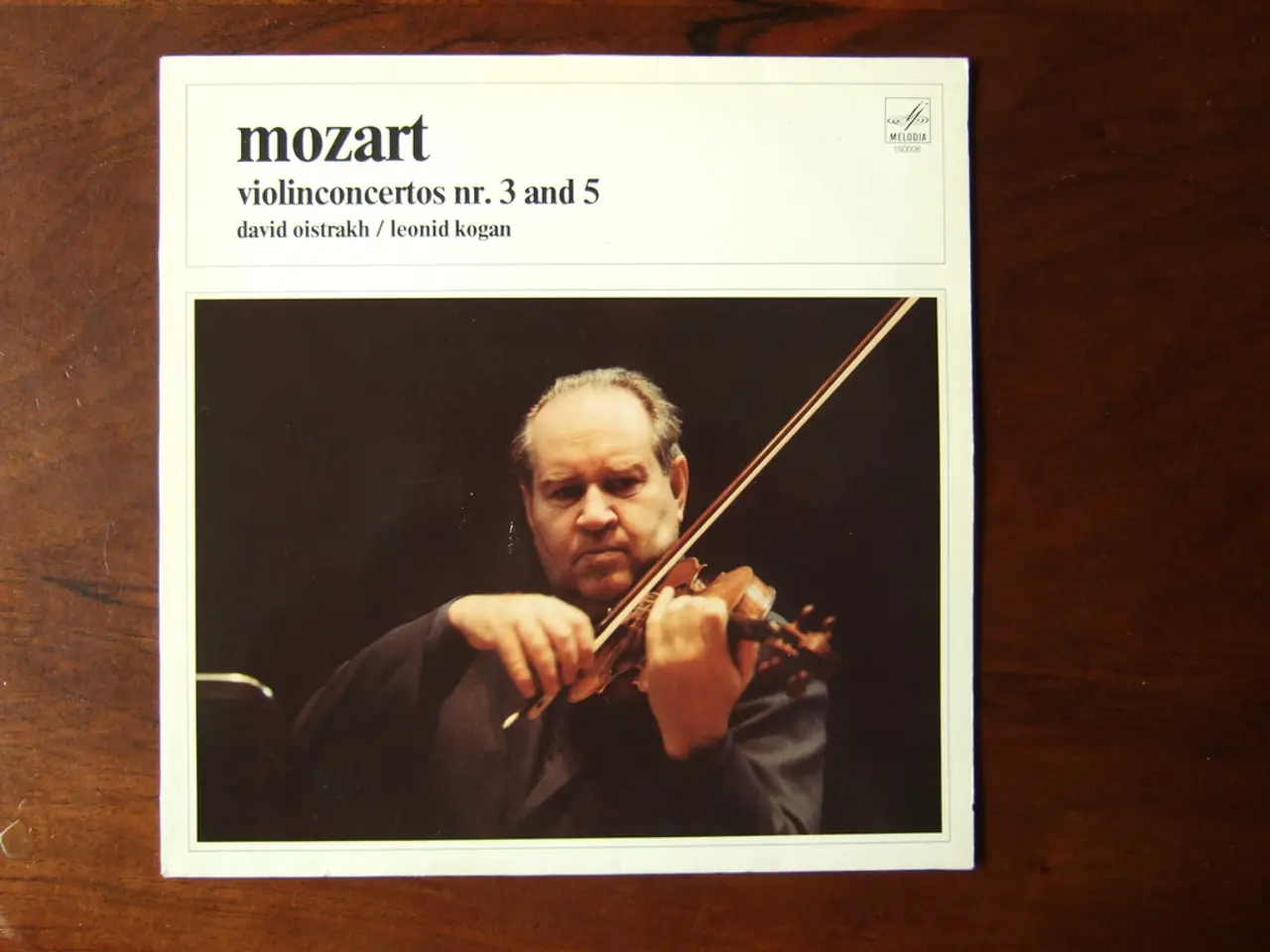Dancing duo's freedom anthem: an almost danceable father-son love story expressed in makossa rhythm
=====================================================================================
Max Lobe's novel, "A Funky-Makossa for Freedom," published by Akono Verlag in Leipzig in 2025, offers a compelling portrayal of Cameroon's contemporary political and social struggles. Set against the backdrop of authoritarian regimes and the quest for freedom, the novel delves into themes of political oppression, exile, identity, and cultural hybridity.
The narrative is rooted in African oral traditions and postcolonial critique, blending indigenous storytelling techniques, linguistic hybridity, and musical references, notably makossa, a popular Cameroonian music style. This vibrant narrative style serves as a testament to cultural resilience and complexity.
At its core, the novel addresses the impact of despotic governance on ordinary citizens, illustrating both the brutality and the perseverance of those fighting for freedom. Characters often confront the dual crises of physical and psychological exile, grappling with loss, alienation, and the search for belonging.
One of the protagonists, Benjamin, struggles to understand his father and the continued presence of authoritarian regimes in his homeland, Cameroon. His emotional withdrawal and devaluation from his family due to his homosexuality are also explored, as well as his eventual journey towards forgiveness. This act of forgiveness is implied to facilitate his departure from his old world and the pursuit of his dreams.
The novel also raises questions about the roles of historical figures such as Rudolf Duala Manga Bell and Ruben Um Nyobè in the context of Cameroon’s history and culture. Esther, a character in the novel, often resolves conflicts and ties up loose ends, embodying a sense of reconciliation.
The message from beyond is one of reconciliation, suggesting that those who have experienced harm and devaluation are in a position to bring messages of reconciliation. Forgiveness, the novel suggests, allows one to move forward, acknowledging that life is uncertain and constantly changing.
The French establishment of authoritarian regimes in Cameroon, which have persisted to this day, is also a significant theme in the novel. Benjamin's friend, Clovis, drags him to protests against Cameroonian politicians visiting Switzerland, reflecting the ongoing struggle against oppressive governance.
Benjamin finds it difficult to connect with people in Geneva, particularly his aunt who married a stubborn white Christian. The old man who delivers a message from Benjamin's deceased father is related to him through several degrees, adding a personal touch to the narrative.
Esther, despite her confidence and wisdom, must conform to the old model of a traditional family due to her husband's public image and self-image. The novel shows scenes in which Benjamin's father behaved stupidly and ruthlessly, possessed by ideas of masculinity that cause damage.
In terms of analysis, "A Funky-Makossa for Freedom" can be seen as a postcolonial narrative that uses innovative narrative forms to challenge dominant historical and political discourses. Its style often mixes the lyrical with the political, weaving personal stories amid larger socio-political commentary. The novel's use of music and rhythm in language underscores its cultural grounding and injects energy into its political messages.
For a more precise context or exploration of particular characters or plot points, accessing literary criticism or academic databases specifically on African literature would deepen understanding.
- Max Lobe's novel, "A Funky-Makossa for Freedom," not only delves into Cameroon's contemporary political and social struggles but also explores the dynamics of family relationships, as one of the protagonists, Benjamin, struggles to understand his father.
- The novel's narrative style, rooted in African oral traditions and blending with postcolonial critique, presents a vivid picture of contemporary lifestyle, incorporating elements of popular music like makossa.
- The book's themes extend beyond political oppression and exile, touching upon relationships, particularly Benjamin's emotional withdrawal from his family due to his homosexuality and his eventual journey towards forgiveness.
- In the realm of entertainment and general news, "A Funky-Makossa for Freedom" offers a unique perspective on Cameroon's history and culture, including discussions on historical figures and their roles.








